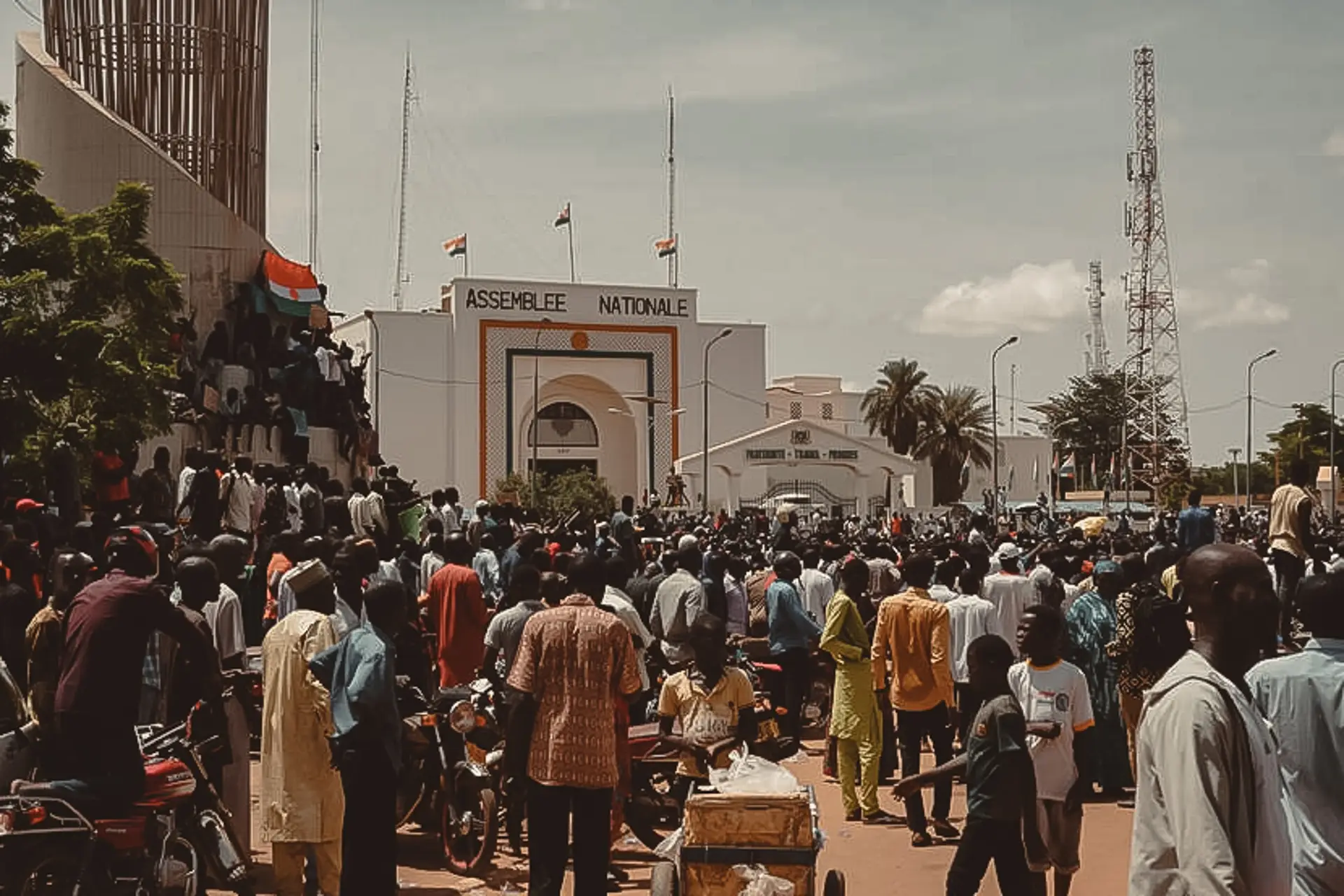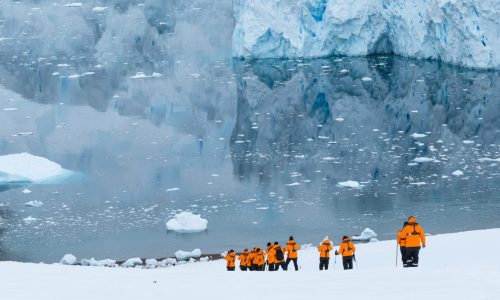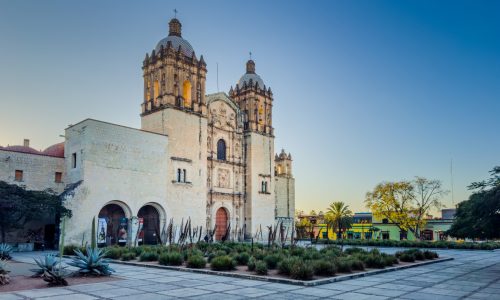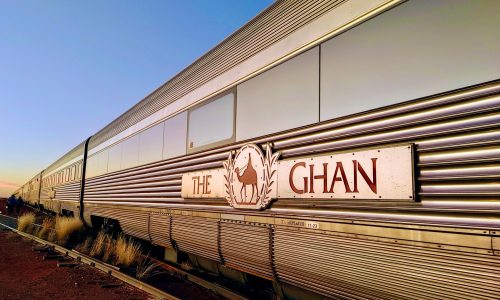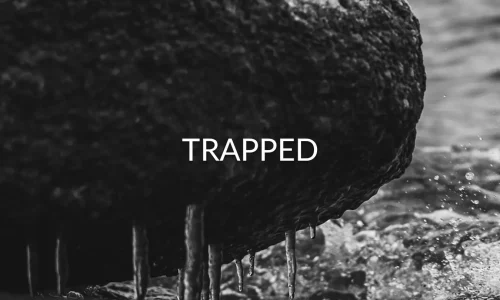The Call — July 31, 2023
It’s a slow Monday afternoon, the kind where I’m slogging through administrative tasks I dread, running a crisis response firm. Then, a text from a friend in the entertainment industry pings my phone: “Hey, don’t you have contacts in Africa?” Messages like this usually lead to something intriguing, so I skip texting back and call instead.
On the other end is the sound of a voice worn thin. I know that sound; I’ve been there myself. My friend, I’ll call him Tom, is a risk manager for a well-known production company, and as he starts explaining, his words tumble out faster, a frantic mix of details he thinks might matter. It’s hard to follow. I interrupt gently: “Slow down, take a deep breath, and walk me through it so I can see if we can help.” Here’s what he told me.
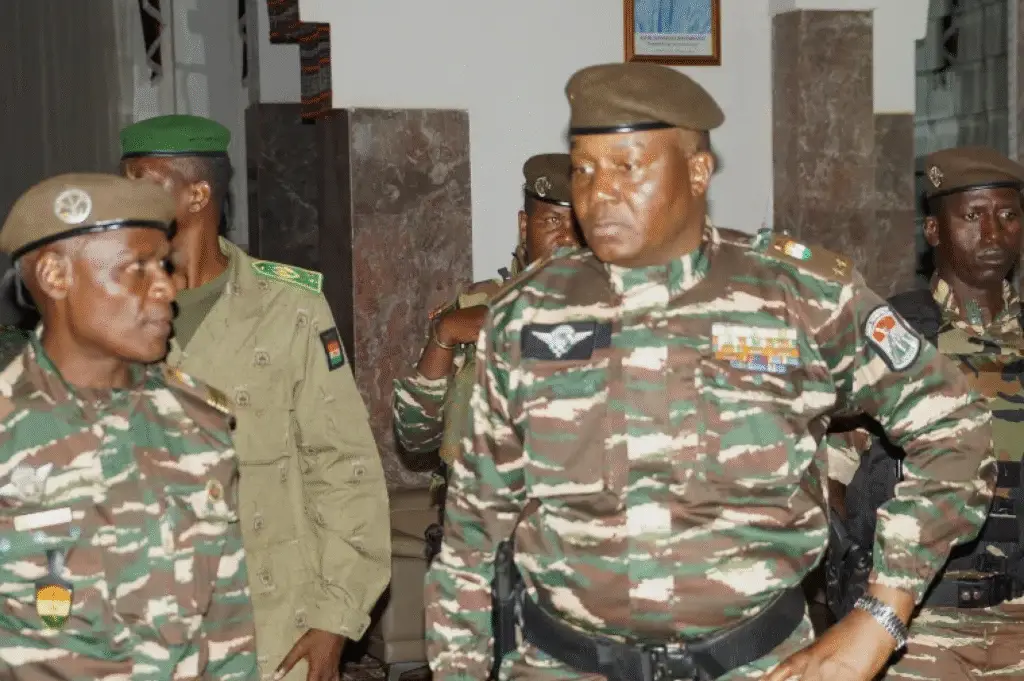
The Coup — July 26, 2023
On July 26, 2023, Niger’s Presidential Guard, led by General Abdourahamane Tchiani, detained President Mohamed Bazoum and his family at the presidential palace in Niamey. Tchiani declared himself head of a military junta, the National Council for the Safeguard of the Homeland (CNSP), suspending the constitution, dissolving state institutions, and closing borders.
Halfway across the country, nearly 1,000 kilometers from the capital, a world-renowned production team is quietly filming in Agadez, Niger, for an upcoming episode on illegal gold smuggling.
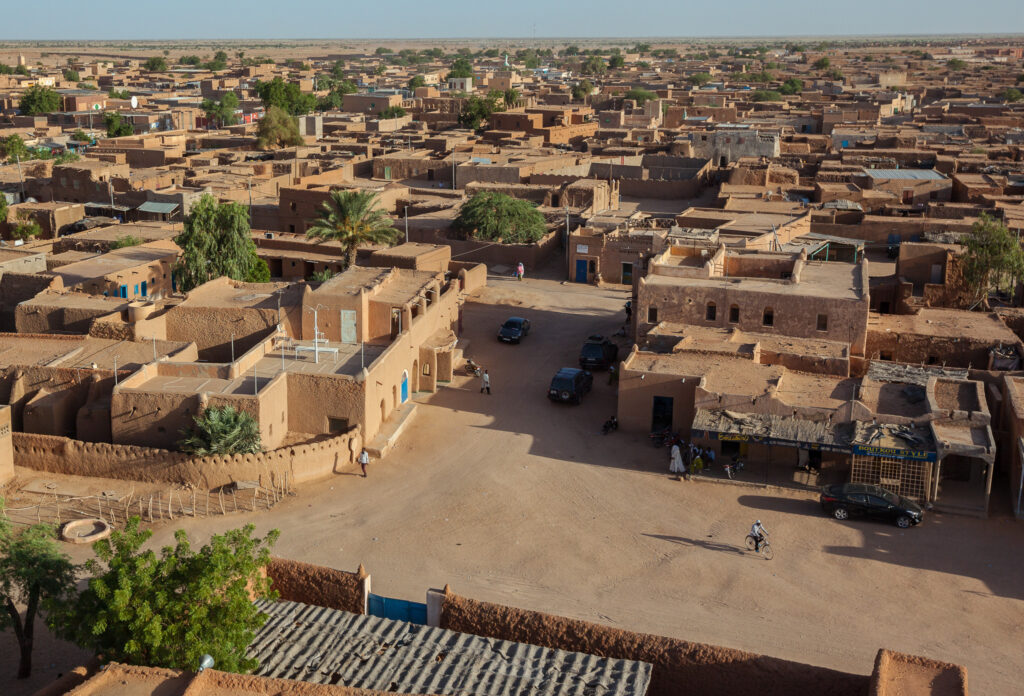
Stuck in Agadez (Tuareg-Controlled Territory) — July 31, 2023
This isn’t an unprepared crew. This is a seasoned, professional production team that lives for high-stakes projects. They followed industry best practices to the letter: utilizing an on-ground risk advisor (a former British SAS member with regional experience), a professional risk assessment which they adhered to, travel insurance, a travel membership policy, and backed by an enterprise risk management team from a globally recognized brand. They were prepared, but they wanted to go home.
The team was staying in a secure hotel in Agadez, stocked with food, water, power, trained medic, and two-way communications. They were in Tuareg-controlled territory, working directly with the Tuareg, a Berber ethnic group often friendly with Americans due to U.S. counterterrorism and aid efforts in the region. In my view, this gave us time to make informed decisions.
It’s just over four days since the coup began, and the team in Agadez is exhausted and scared. They just want to get out. They pulled every lever available to them: contacted the U.S. Embassy’s Regional Security Office, a leading crisis response firm already tied to their insurance policy, a well-known travel membership firm, and the risk management team of a major global television network. All responded as “working on it,” but offered shockingly uniform advice: “Drive to Niamey, stay at the Radisson Hotel, wait for airspace to reopen for commercial flights or for the U.S. Department of State to initiate a Noncombatant Evacuation Operation (NEO) to get placed on a flight manifest.”
Wait — Drive to the Heart of the Coup?
I’m speechless. “Let me get this straight,” I say. “They’re telling you to drive 1,000 kilometers from Agadez, far from the coup’s epicenter, through junta-controlled checkpoints, on roads with zero reliable intel, over 1.5 days, to stay at the Radisson — one of the most prominent hotels in Niamey? When hotels are historically known targets for terrorist attacks on Westerners in Africa? Like the Radisson Blu in Bamako in 2015, or countless other hotel attacks in the region? You’re supposed to go to the heart of the coup and wait at what’s now the biggest bullseye for French and American citizens? Please don’t do this yet. Give us some time to provide a better strategy.”
Questions pour out:
- Q: “Have you or the response firms assisting you contacted the U.S. military at the base south of the Agadez airport?
A: No.
- Q: “Have you or the response firms assisting you explored land border crossings?”
A: No.
- Q: “What local support does the production team currently have on the ground?”
A: They’re working with the town’s governor and have Tuareg security.
- Q: “Have the response firms assisting you tried evacuating the production team from the Mano Dayak International Airport, 10 minutes from the teams current location?”
A: They (the travel membership firm I’ve chosen to leave unnamed), say the runway is too small, and our insurance won’t cover private aircraft for the evacuation and is pushing for our production team to drive to Niamey.
“Too small?” I quickly research and review the AIP for Mano Dayak International. “That’s a 10,000-foot runway…Unless it’s damaged, you can land almost anything there — maybe even an Airbus A380 or Antonov An-124 with some finesse.” I laugh at the absurdity of the guidance.
“Can you help us find a plane?” Tom asks.
“Yes,” I reply.
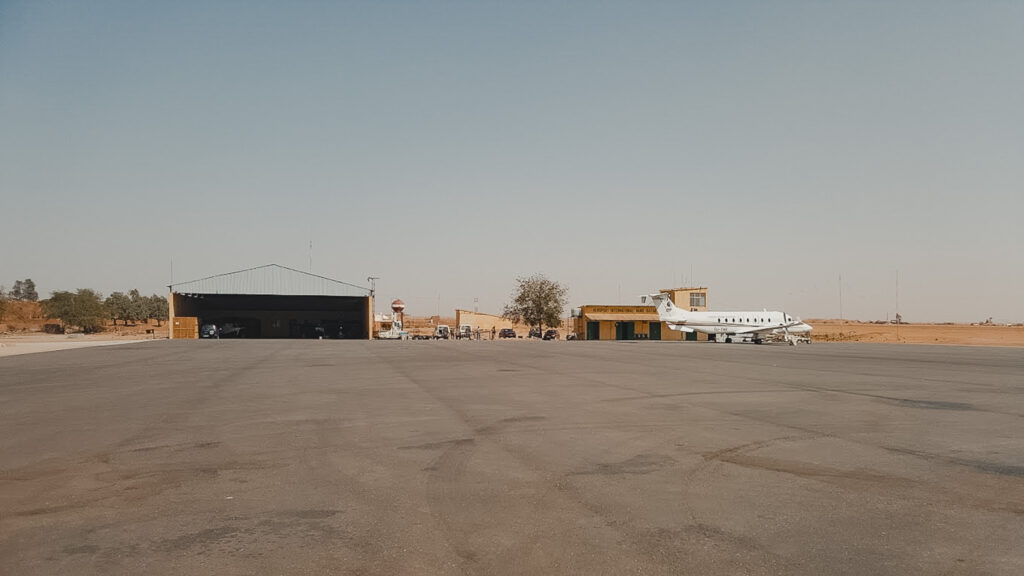
Success — August 1, 2023
Within 4.5 hours from that first call, our team (Merrill Herzog) secures an aircraft. The next day, Tuesday, August 2, 2023, the production team is safely evacuated from Mano Dayak International Airport in Agadez, Niger. Clearly there are gaps in this story — details that would take too long to recount — but that’s not the purpose of this article. The point is to highlight flaws in the current travel risk and insurance industry, and to that point, the core issue is clear: the mechanisms put in place and meant to protect the team traveling in Niger, failed. But how, and why?
The Problem with the Travel Risk and Insurance Industry
Unfortunately, I’ve seen a pattern of failures similar to what I encountered with the situation in Niger, repeat themselves in places like Puerto Rico, Afghanistan, Sudan, Gaza and Ukraine. The travel risk and insurance industry is broken, and these recurring issues stand out as reasons why:
- Exclusions and Delayed Triggers: Most policies from many travel risk and insurance providers are riddled with exclusions or only activate after official government guidance pertaining to a specific set of circumstances, often leaving travelers stranded without covered assistance. That said, there are specialized insurance firms like Samphire Risk (https://samphirerisk.com), a London-based MGA, that write complex coverages that actually deliver — I’ve seen it firsthand.
- Organizational Bloat: Crisis response firms often hire top talent, but their impact is kneecapped by policy limits, rigid corporate procedures, and a poor standard of care as firms scale. When shareholder value trumps service, clients suffer. I’ve seen a policyholder, paying nearly $750,000 in premium annually, get a text from their crisis response firm during a malicious detention: “Good luck, bro. Sorry we can’t help on this one.” That was an actual response, and is completely unacceptable.
- Too Much Hype: Last week, my firm, Merrill Herzog, was in talks to replace a major crisis response firm for kidnap-for-ransom response on the back of a very large insurance portfolio. The client was drawn to and asked about the competitor’s “global presence.” Let’s cut through the noise: in a crisis, response hinges on a handful of experts — usually based in the U.S., London, or Australia — not a minimum-wage guard with a rusty Remington 870 shotgun outside a mall in Mozambique. Effective response requires experience, relevant local and federal agency coordination, resources (money, logistics, facilitators, interlocutors), and smart decision-making. That’s it. In high-stakes matters such as this, “global presence” is a red herring.
- Overreliance on Government Rescue: There’s a scene in the film, The Saint where Val Kilmer’s character is being chased by villains, and runs towards a U.S. Embassy in Russia yelling, “I’m an American!”, “I’m an American!”, as Marines fling open the gates and help him inside. Pure Hollywood. Embassies prioritize U.S. mission objectives during crises, not individual civilians. They’re a resource, but not your primary evacuation plan. Counting on them — or the evening news directing you towards an embassy with the promise of rescue, is a mistake.
Fixing a Broken Industry
Travelers and risk managers must shift from chasing big names and glossy marketing to finding true experts who prioritize protection. How? Call firms directly. Ask for team bios, hypothetical response plans for specific countries, and policy details. Read reviews online — there are plenty for every major firm. If you’re investing in travel protection, take the time to ensure it’ll be there when you need it most.
Our Part in the Solution — Frontline Global
After years of frustration with the commonplace approach the overall travel assistance industry has towards clientele, and having to step in to assist other firms when their delivery falls short of their marketing, Merrill Herzogis launching Frontline Global to make waves and manifest change.
Frontline Global is a membership-based travel protection product built to address the risks associated with traveling the globe. Developed over 2.5 years by industry veterans, in collaboration with clients, leading insurers, global subcontractors, government experts, and our own crisis response team, Frontline Global is designed to prevent another team, individual, or family from being stranded for days, like the one in Niger, waiting for help that never comes.
We are here to set a new standard for travel safety and crisis response — one that puts people first.
Follow us and read more think pieces on our Medium Page.
